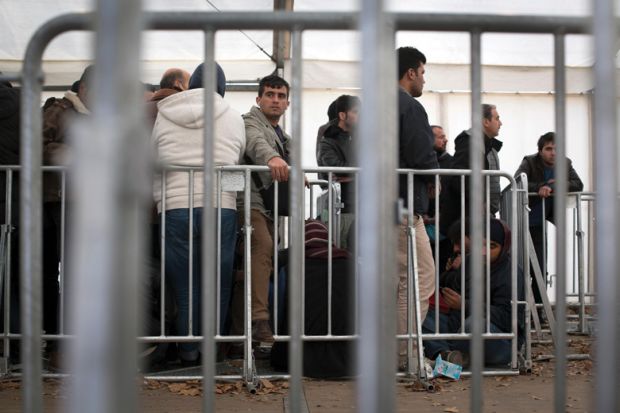The Scholar Rescue Fund in New York has called further attention to the plight of academics trapped in Syria and Iraq – and what can be done to help them.
“We know that academics are specifically targeted by the so-called Islamic State,” said assistant director James King, “both because of their presumed secular outlook and also because they were employees of state institutions, and the state is the enemy in both Syria and Iraq. Individuals have been beheaded for refusing to comply with the changed curriculum.”
Since the beginning of the Syrian conflict, the SRF – which forms part of the Institute of International Education – has awarded 130 fellowships to Syrian professors and researchers, enabling them to continue their work at nearly 70 safe-haven universities and research centres in 12 countries.
In Jordan, the fund has built close links with the government, so something of an Iraqi faculty-in-exile has been created there, with a member of the royal family on one occasion sending her car to the border checkpoint to facilitate an academic’s crossing. Yet many thousands of academics whose universities have been taken over by Islamic State remain trapped and unable to leave their countries.
“It is not the intention of the self-proclaimed Islamic State to have academics flee,” explained SRF chairman Mark Angelson. “The alternatives are for the academics to conform to the academic system imposed by Islamic State or they are murdered. It’s a binary decision. Flight is an option academics choose, not something Islamic State offers.
“If we award a fellowship to a professor in Mosul, we are not able to arrange for them to get out. But what we are providing is the solution once they are able to flee. It’s very difficult to flee a place like Mosul and potentially risk your life if there’s nothing waiting for you at the other end. We are focused on giving them hope and a solution once they are able to get out.”
To publicise their plight, the SRF held a forum on 29 April bringing together fellows, university hosts, funders and those working on human rights in governments and universities.
After a panel exploring the targeted repression academics face all over the world, others addressed the impact of Islamic State on academia and how outside universities should respond.
In the longer term, most of the scholars rescued from Syria and Iraq would like to return to their home countries, where Mr King believes they “will play essential roles in leading reconciliation efforts. The university should be a vanguard for diverse groups to come together and work through societal challenges. We know our scholars will be heavily involved in that.”
后记
Print headline: Academics trapped in Syria and Iraq: how is it best to help?




